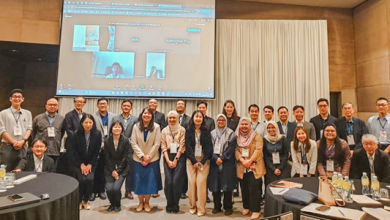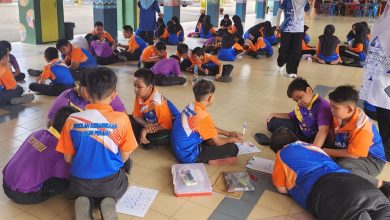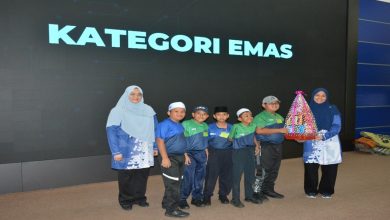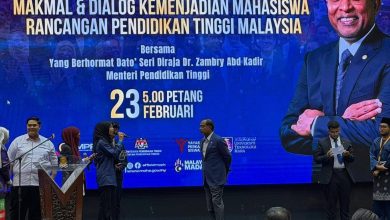9th Series of SE-Budi Hasanah (Hasanah Special Grant): cultivating language, culture, and resilience through curriculum innovation
Pictures SE-Budi Team and Unifilm Internship Students
LANGKAWI, 27 October 2025: The SE-Budi Hasanah Community-Based Language Learning (CBLL) Programme, funded by Yayasan Hasanah – subsidiary of Khazanah Nasional) — under the Hasanah Special Grant 5.0 (HSG 5.0) worth RM361,000, continues to create meaningful educational and social impact in Pulau Tuba since its inception in May 2025. Implemented by Universiti Utara Malaysia (UUM) through the Cooperative and Entrepreneurship Development Institute (CEDI), the initiative engages 250 secondary school students from SMK Langkawi, Pulau Tuba, through experiential, culture-based English language learning.
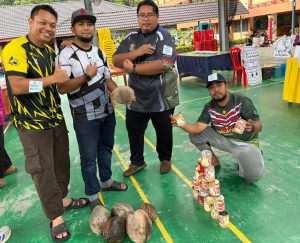
The programme is delivered in strategic partnership with UUM Leads Sdn. Bhd. as the official signatory partner, Unifilm Studio as the official videographer and internal strategic partner, and Koperasi Kepulauan Tuba dan Selat (KOPTUBAS) as the official community bridge partner. Together, these collaborators connect UUM’s academic ecosystem with the realities of island communities—ensuring that learning, livelihood, and leadership intertwine in a sustainable, people-centred model of education.
The 9th Series of SE-Budi Hasanah, held from 23 to 25 October 2025, once again embodied the programme’s distinctive blend of language, culture, and character education. Participants strengthened linguistic precision and contextual fluency through Grammar and Cloze Passage exercises, while traditional games such as boling nyok, timbang bola, gasing, and tin-can knockdown became living laboratories for communication, collaboration, and adaptive thinking.
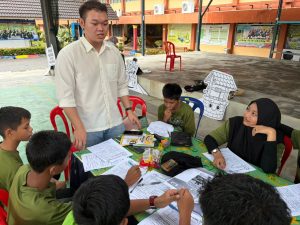
The highlight of the series – the Language and Cultural Dance Night — featured the northern Malaysian Ayam Didik dance, chosen for its symbolism of leadership, empathy, and unity. Through rhythm and movement, participants experienced how culture can become a form of dialogue. Entrepreneurship-themed language activities such as Monopoly and Scrabble further encouraged creativity, negotiation, and vocabulary development through play.
At the heart of SE-Budi Hasanah lies its dedicated team of student mentors—a vibrant collective representing diverse ethnicities, disciplines, and cultural backgrounds across UUM. Passionate, creative, and community-minded, these student mentors are the nadi—the heartbeat—of the programme. Under the student-leadership of Ms. Siti Nurul Aulia Abdul Malek, a student from the School of Law and the President of the Penang Chapter Club, the cohort exemplifies youth leadership in action.
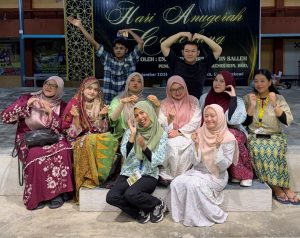
Given the freedom to explore diverse leadership roles, they conduct the programme as a non-credited SULAM (Service Learning Malaysia) experience, embodying UUM’s belief that service learning and civic responsibility extend beyond classroom. Their ability to bridge linguistic, cultural, and social divides — while guiding school participants through teamwork and reflection—captures the essence of transformative, socially rooted education that defines SE-Budi Hasanah.
Pedagogically, SE-Budi Hasanah rests on a framework of curriculum innovation grounded in educational psychology, drawing from Kolb’s (1984) Experiential Learning Cycle, Vygotsky’s (1978) Sociocultural Theory, Bandura’s Social Learning Theory, and Masten’s (2014) concept of resilience. These theories are not confined to paper — they come alive in the classroom and the community. The act of winding a gasing before it spins, for instance, mirrors the metacognitive preparation and focus needed in learning, while group gameplay reflects real-world problem-solving that values experimentation, feedback, and adaptability. This dynamic interplay between culture and cognition transforms traditional play into a powerful tool for developing communicative competence and resilience.
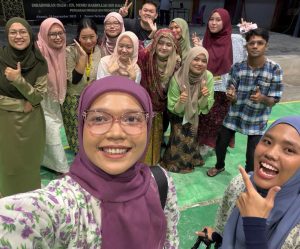
The SE-Budi Hasanah programme was conceptualised under the academic advisorship of Professor Dr. Nurahimah Yusof and Dr. Muhammad Noor Abdul Aziz, who also supervise Ms. Fatin Athirah Fadzillah, the programme’s Lead Researcher and Doctor of Education (Ed.D) candidate at UUM. Their expertise in curriculum design and instructional innovation ensures theoretical coherence and scholarly depth. Under their mentorship, SE-Budi Hasanah has evolved into a model that unites language education, community engagement, and values formation — demonstrating how academic research can translate into social transformation and policy-relevant educational practice.
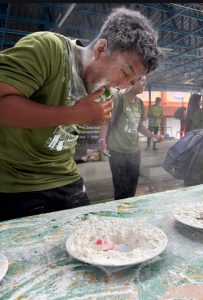
Deputy Executive Director of CEDI, Dr. Saiful Azizi Ismail, commended the programme’s holistic design and its role in bridging academia with the community. “SE-Budi Hasanah exemplifies how education can be reimagined beyond formal boundaries. By merging language, culture, and resilience through experiential and collaborative methods, it nurtures students who are not only linguistically confident but also reflective and socially grounded,” he said.
Ultimately, the SE-Budi Hasanah initiative stands as a flagship of UUM’s commitment to advancing community-based education and social innovation, in alignment with Yayasan Hasanah’s mission to promote equitable and inclusive development. By intertwining language learning, cultural immersion, and Budi, the moral intelligence that unites intellect with compassion — the programme reaffirms a timeless truth that is when education is rooted in community and guided by purpose, it nurtures resilient learners and compassionate future leaders. – Muhammad Ishaq Hajah Alavudin


